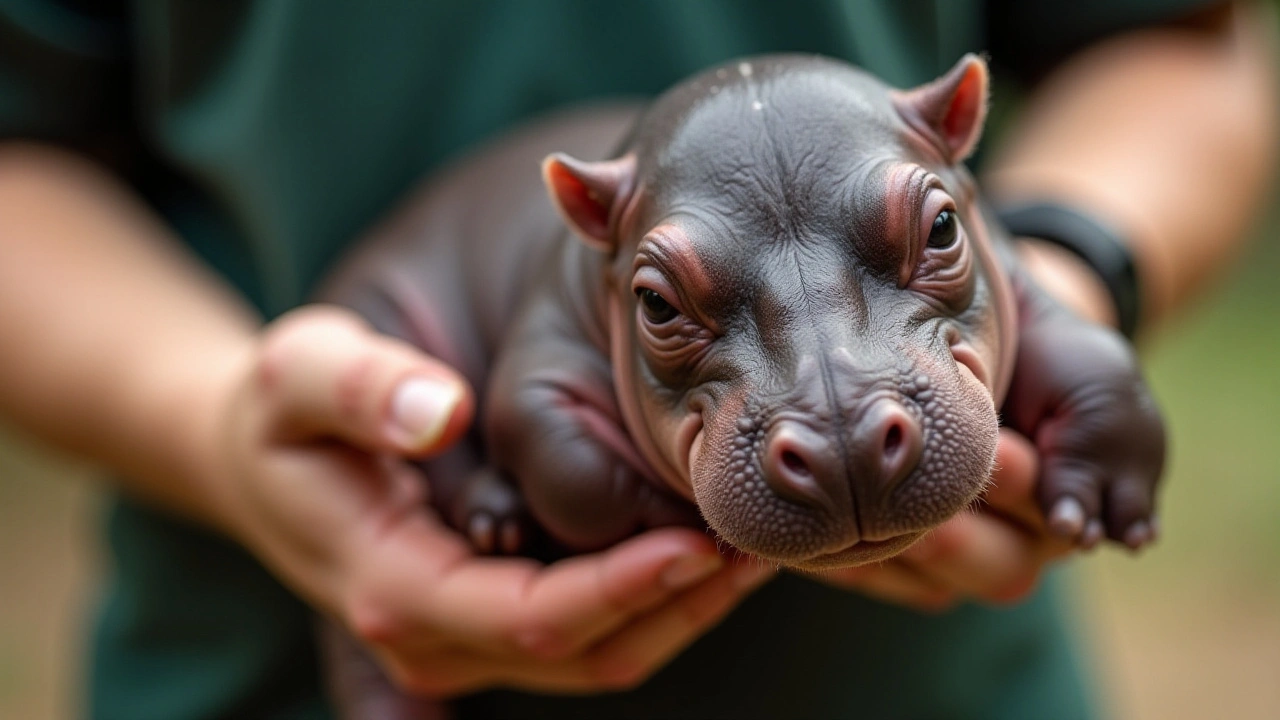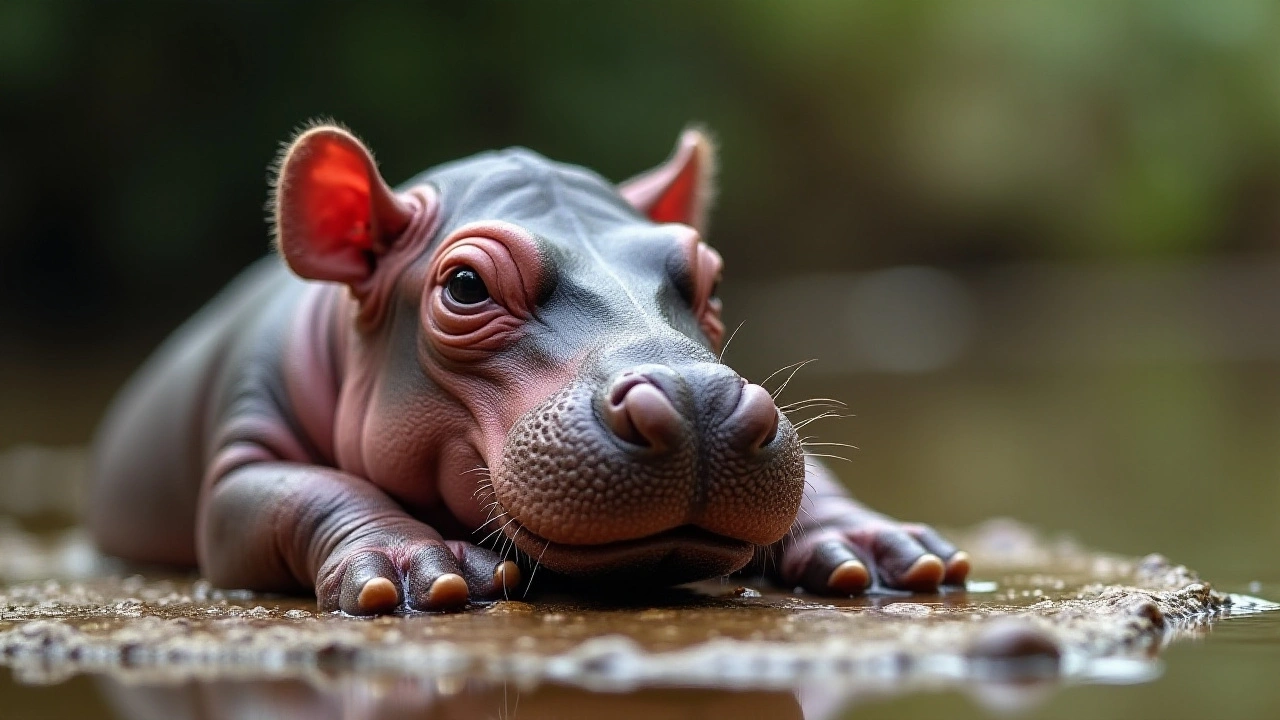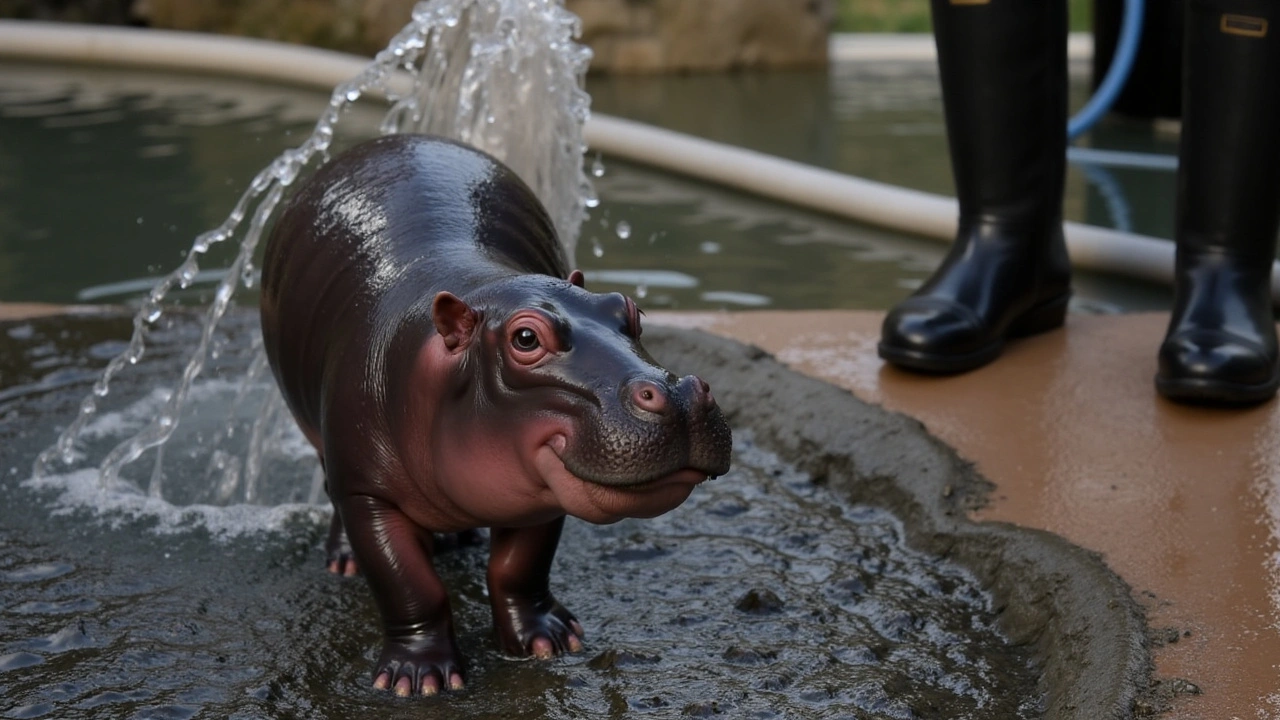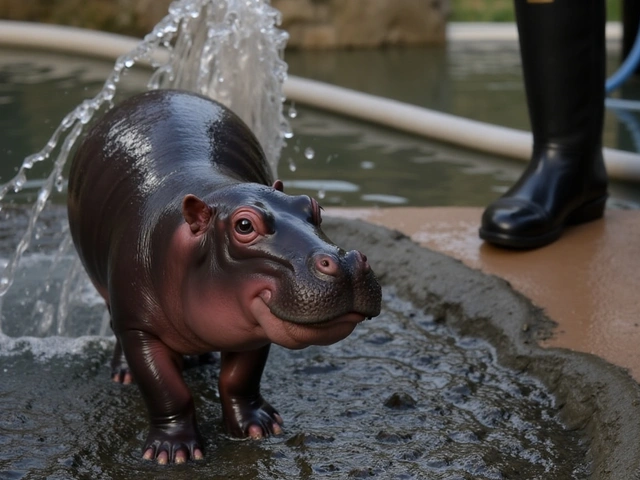Moo Deng: The Baby Pygmy Hippo Stealing Hearts Worldwide
In the bustling world of social media, where adorable animal videos are a daily delight, a new star has emerged. Her name is Moo Deng, and she is a two-month-old pygmy hippopotamus currently residing at the Khao Kheow Open Zoo in Thailand. Born in July, Moo Deng has become a viral sensation, drawing in fans from across the globe with her undeniably charming presence.
Moo Deng's heartwarming photos and videos first surfaced online through the zoo's official Facebook, X, and YouTube channels. It didn’t take long for her adorable demeanor to capture the attention of social media users, leading to her widespread fame. Fans have taken to reposting her content along with heartfelt messages, describing Moo Deng in various affectionate and humorous ways. Whether 'inexplicably moist all the time' or 'often slightly blurry in pictures,' the descriptors bring a lighthearted, human touch to the young hippo's burgeoning stardom.
A Community of Enthusiasts
The level of adoration for Moo Deng has reached such heights that she is now regarded as a 'lifestyle icon' by many of her enthusiasts. On the night of the Emmys, September 15, a whimsical celebration ensued as fans shared a photoshopped image of Moo Deng gracing the red carpet. Even big names in the beauty industry, like Sephora Thailand, joined the fun by posting makeup tips inspired by the baby hippo. Suggesting followers to 'wear your blush like a baby hippo,' it was clear that Moo Deng had found a place in the hearts of many.
But what makes Moo Deng and her kind so unique? Pygmy hippopotamuses are a species distinct from their larger relatives, the common hippopotamuses. Indigenous to the forests and swamps of West Africa, pygmy hippos have a distinct set of characteristics. They reach only half the height and weigh less than a quarter of the mass of their larger counterparts. Typically, newborn pygmy hippos weigh between 10 to 14 pounds and are weaned by the time they are six to eight months old.
Conservation and Protection Efforts
Despite the joyous occasion of Moo Deng’s viral fame, there are rising concerns regarding her safety. The influx of visitors eager to catch a glimpse of the baby hippo has led to some troubling behaviors. Reports emerged of visitors throwing water and other items at Moo Deng, actions the zoo officials describe as 'not only cruel but also dangerous.' In response, the zoo's director, Narong Chodi, made an official announcement on September 15, implementing restricted visiting hours. Visitors are now allowed only on weekends and each visit is limited to a mere five minutes.
The measures are vital, considering the endangered status of pygmy hippopotamuses. According to the Pygmy Hippo Foundation, there are an estimated 2,000 pygmy hippos left in the wild. This number continues to decline primarily due to habitat loss and ongoing hunting for bushmeat. Narong Chodi emphasized the importance of ensuring animals like Moo Deng have a secure and comfortable environment, free from the disruptions and dangers posed by excessive human interaction.

The Larger Picture of Pygmy Hippos in the Wild
Understanding the plight of pygmy hippos in the wild provides a sobering backdrop to Moo Deng's story. These elusive creatures are mostly found in the dense forests and swamps of countries like Sierra Leone, Guinea, and the Ivory Coast. Their habitats are increasingly under threat from deforestation and human encroachment. In addition, illegal hunting for bushmeat poses a significant risk to their population. Efforts by various conservation organizations aim to protect these habitats and curb illegal hunting, but challenges persist.
Adding to these challenges is the occasional difficulty in breeding pygmy hippos in captivity. Ensuring that captive populations remain healthy and viable is crucial for the potential reintroduction of individuals into the wild, should such measures become necessary in the future. Success stories like Moo Deng's can help raise awareness and drive conservation efforts. It's a reminder of the delicate balance needed to preserve these remarkable animals.
How Social Media Helps Conservation
While the viral nature of Moo Deng's story has led to concerns about her safety, it also offers an opportunity. Social media has proven to be a powerful tool in raising awareness and generating support for conservation efforts. The widespread attention Moo Deng has received underscores the potential of these platforms to mobilize public interest and aid in protecting endangered species. By sharing her story, fans and followers contribute to a broader understanding of the challenges faced by pygmy hippos and the importance of safeguarding their future.
The enthusiasm and adoration for Moo Deng illustrate how a single animal's story can resonate with millions and inspire positive action. Educational posts, fundraisers, and advocacy campaigns can leverage this attention to support conservation programs. The involvement of well-known brands like Sephora Thailand further highlights the capacity of viral stories to engage diverse audiences and foster meaningful dialogue about wildlife conservation.

Conclusion: A Balancing Act
Moo Deng's rise to fame is a testament to the power of social media and the universal appeal of adorable animals. However, it also serves as a reminder of the responsibilities that come with such attention. The Khao Kheow Open Zoo's measures to protect Moo Deng are necessary steps to ensure her well-being. As we celebrate her charm and the joy she brings, it's essential to remember the broader context of her species' struggle for survival. Through informed and compassionate engagement, we can all play a role in supporting the conservation of pygmy hippos and other endangered creatures.
In the end, Moo Deng's story is not just about a cute baby hippo; it's about the urgent need to protect and cherish the incredible diversity of life on our planet. By appreciating and safeguarding these precious animals, we can help ensure that future generations will also have the opportunity to witness the wonder of creatures like Moo Deng.



Leave a Comments